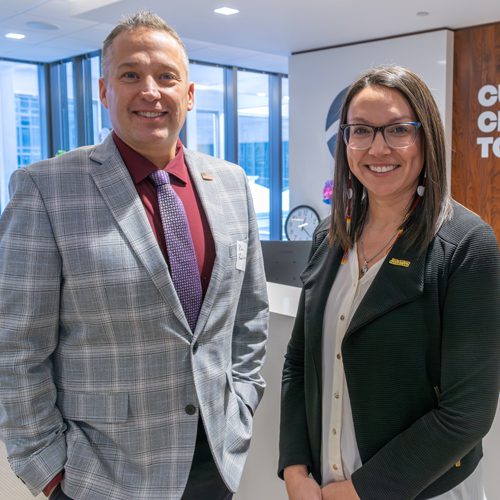New Report Urges Support of Youth Career Pathways

“Paving the Way to Prosperity” highlights challenges and opportunities for Twin Cities programs serving young people.
The opportunities that young people have today to explore and launch careers will play a key role in shaping their futures—and tomorrow’s workforce. That’s why the Minneapolis Foundation commissioned a new report on the local landscape of career pathway programs that support youth as they gain work experience, build skills, cultivate mentors, and earn credentials.
“Paving the Way to Prosperity: Insights Into the Twin Cities Youth Career Pathway Ecosystem” examines programs serving youth ages 14-24 in Minneapolis, St. Paul, and the western suburbs. The report gathers input from providers about what’s working and what’s not, and it makes recommendations for how philanthropy, employers, government, and other stakeholders can support and elevate the impact of youth career pathways.
“More young people will thrive if we do a better job connecting all the supports they need, rung by rung, up the ladder of success.” — R.T. Rybak, President and CEO of the Minneapolis Foundation
The report builds on the Minneapolis Foundation’s longtime commitment to advancing equity in both education and economic mobility. “By mapping the ecosystem, we aim to uncover opportunities for our community to come together to strengthen youth career pathways,” said Patrice Relerford, the Foundation’s Vice President of Collective Impact and Giving. “We are grateful to the many partners who contributed to this report and look forward to using its findings as we deepen our work on this issue.”
More than two dozen community organizations participated in the landscape analysis, including nonprofits, funders, government agencies, school districts, and higher education institutions.
“This report puts a spotlight on good programs that already exist, gathers insights from providers on the biggest challenges they face, and shares opportunities they see for our community to better serve young people,” said report author Kenneth Eban of MKE Consulting.
The report’s recommendations fall into three main categories, which align with the Foundation’s levers for change:
Grantmaking
The report calls on funders to:
- Provide flexible funding to allow programs to meet the unique needs of young people.
- Fund efforts that foster collaboration to provide more opportunities and tangible benefits for young people.
- Provide school districts with funding to strengthen their career readiness infrastructure.
Policy
The report identifies opportunities for lawmakers to strengthen career pathways by:
- Changing the Postsecondary Enrollment Options (PSEO) model to better incentivize high schools to leverage PSEO as an opportunity for students to earn certificates and credentials.
- Loosening the restrictions on seat time to allow for more work-based learning opportunities.
- Increasing base funding for state youth workforce development grant programs.
Convening
The report identifies a need to better align the efforts of cross-sector leaders by:
- Convening employers to help them understand the importance of youth workforce development and the role they play.
- Convening K-12 education and higher education stakeholders to identify solutions so high schools are not discouraged from informing students about PSEO.
- Convening state agencies to identify opportunities to collaborate so they can reach and support young people more effectively.

